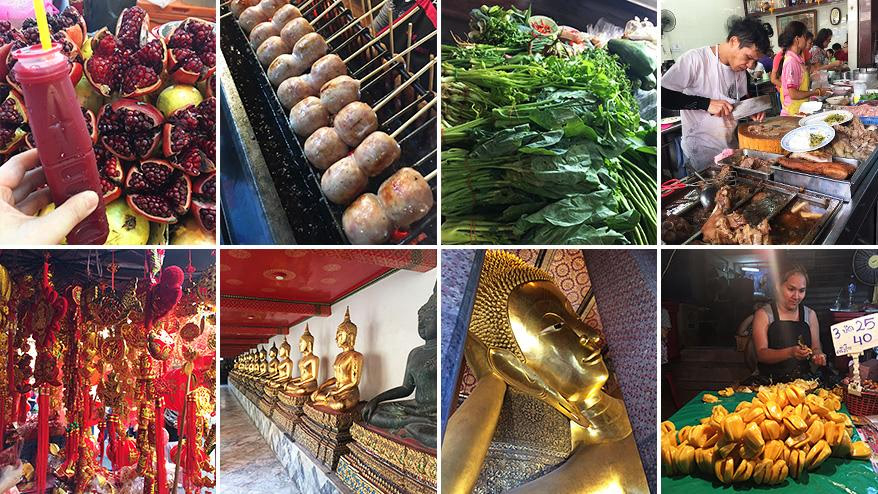Sawadee ka! I'm Akamine, a graduate of the second class of Kamiyama Monosasu Juku.
I have been working with Monosus Thailand since January of this year.
From the cold Kamiyama to Thailand, the land of smiles where temperatures are over 30 degrees. The temperature difference is about 30 degrees!
Looking back, it seems like a very natural progression that I came to work in Thailand. I would like to take a moment to reflect on why I am in Thailand now and tell you about the circumstances that led me to come here.
Encounter with Southeast Asia - JHP School Building Association -
One of the activities that has been my life's work since my student days is the " JHP School Building Association " (※). It is an NPO organization that mainly works to build schools and playground equipment in Cambodia. As part of this activity, I stayed in Cambodia for a month while I was a university student, and that was my first encounter with Southeast Asia.
In Cambodia in 2001, there were still gun-toting guards on street corners and gunfire echoed at night. There were no traffic lights on the roads, and people could ride motorbikes as much as they wanted without helmets. When an escalator was installed in a supermarket, it made the news, and locals who didn't know how to use it became a hot topic. While the country's security and infrastructure were not in good shape, there were many shops in markets and on their doorsteps, and looking at the lovely smiling faces of the local people, I could see signs of future development, and this vibrant country looked very fresh to me.
And I was fascinated by the chaotic atmosphere of Southeast Asia, so I started backpacking once a year. With only my plane ticket in hand, I traveled overland throughout Cambodia, Vietnam, Malaysia, Indonesia, etc., and spent time eating local food with local people. Because of this background, even though I had never set foot in Thailand, I could easily imagine living there, and it felt like I was going to a familiar place.
*JHP School Creation Association

It stands for Japan Team of Young Human Power and is a volunteer group headed by Mieko Koyamauchi, the screenwriter for "3-nen B-gumi Kinpachi Sensei."
It was founded in 1993 under the philosophy of "Those who have money, use your money! Those who have wisdom, use your wisdom! Those who have the drive, work together!" and the motto, "Let's start with what we can do."
Learning Culture Through Language
In my previous job at a manufacturing company, I was in charge of the liaison office for overseas sales companies, so I communicated with them in English as a common language in America, Europe, China, Korea, India, Singapore, etc. What I found interesting through this job was that even though it was the same English, the language spoken in each region was different, and I could feel the culture behind it.
Spoken pronunciation, including mine, is inevitably influenced by my native language, but even written language can give you a sense of the characteristics of a country or a person. Grammar, choice of words, and even the way someone requests something can be completely different. Modest and polite, indirect and gentle, direct and strong - perhaps the differences in impressions we get from country to country are due to the culture there.
Among them, the impression I got when interacting with people from Asian countries was their quick response, detailed explanations, and kind way of speaking. I mainly had the opportunity to interact with women, and I felt that I saw a role model that doesn't exist in Japan in the way they combined their work and private life and promoted themselves.
From these experiences, I have come to enjoy experiencing a country or its people through the filter of language. I think Thailand is an environment that piques my interest. I plan to study Thai from now on, so there are many things I want to know, such as where the language originated, what kind of structure it has, how many types of adjectives there are, and so on.
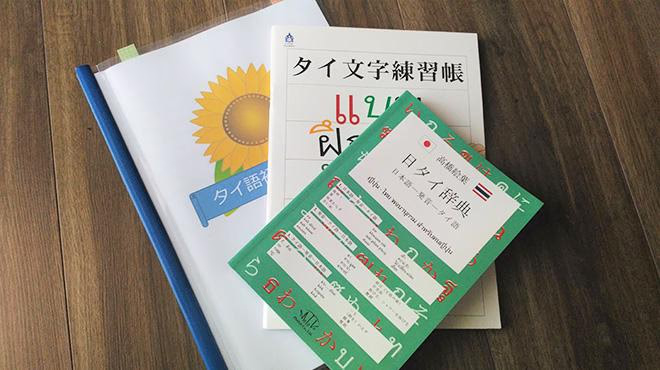
Textbooks used in Thai language schools. The variety is likely to increase in the future.
Possibilities and Opportunities in the Countryside - Local Venture School -
More than a year ago, while I was still working at my previous job, I was interested in starting a business in the countryside, so I attended a local venture school . This school used the " Regional Revitalization Cooperation Team " system to learn the basics of starting a business in a rural area and acquire the necessary mindset and skills.
At the time, I was working in Tokyo, but I had been living in the countryside of my hometown, Oita, and I liked living near the sea, mountains, and fields, and more than anything, it was difficult for me to use trains and buses for transportation due to my chronic illness. I wasn't particularly attached to my hometown, but I wanted to live in the countryside, and when I was thinking about what kind of work I could do there, I found out about this school and decided to join.
Here, former members of the team and key people active in the local area serve as lecturers, and students learn about business startup cases and actually visit the local areas. For the final graduation training, the students visited Tono City, Iwate Prefecture (※). Witnessing the moment a new business is born made me realize the potential of the countryside. This prompted me to decide to quit my previous job and start something in the countryside.
※LOCAL HACK DAYS

I realized later that it was connected to Field Hack TONO , which is now run by Next Commons Lab .
How to work from anywhere - Rural freelance course -
After quitting my previous job, I headed straight for Kanaya in Futtsu City, Chiba Prefecture. I did a trial move there for one month to participate in the " Rural Freelance Course ," a program that supports people who want to acquire the skills necessary to become independent in the countryside and who want to try their best in a rural environment.
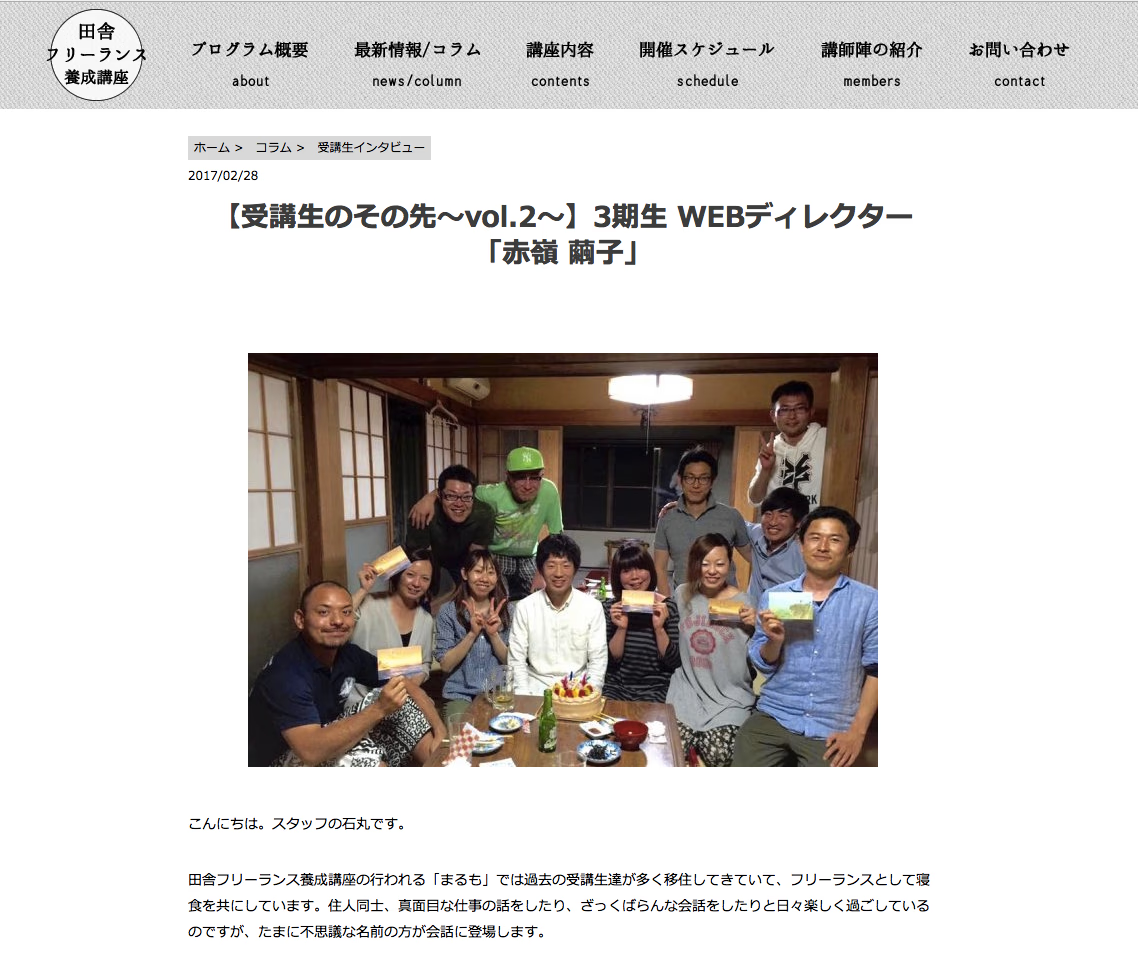
Recently, a writer, Maruji-san (also known as Ishimaru-san), interviewed the student about his progress. The article was published on the Rural Freelance Course website.
ttp://inaka-freelance.jp/mayuko-akamine-interview/
Here, you can learn a wide range of skills, from website creation to rural areas such as agriculture and guesthouse management. The web is a world I have never stepped foot in. I was able to experience being able to work anywhere with just a PC, which was not an option for me, and it opened up my world all at once. It was through this course that I first encountered the word "coding" and became interested in it.
However, at this point, I had only two extreme options, either working for a company or starting a business, so to be honest, I didn't really know what kind of work style would suit me. However, when I left my previous job, I had decided on one thing. That was to work with people who I wanted to work with. Ideally, I would work in a place where we could see each other's faces and empathize with each other.
As the course was nearing the end, I happened to notice a job posting from Shigoto Hyakkaten.
http://shigoto100.com/2016/05/monosus-3.html
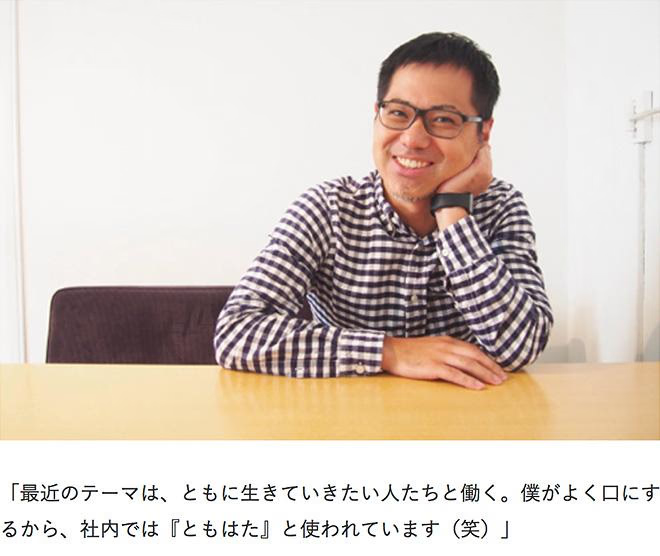
"Work with people you want to live with" The more I read it, the more I felt a storm of empathy (in my own mind). I wanted to value values, so I was even moved to find out that there was a company that embodied that ideal. Needless to say, it took me only a few seconds to apply to Kamiyama Monosasu Juku, where I could learn coding, which I'm interested in, and live in the countryside.
Knowing yourself - Kamiyama Monosasu School
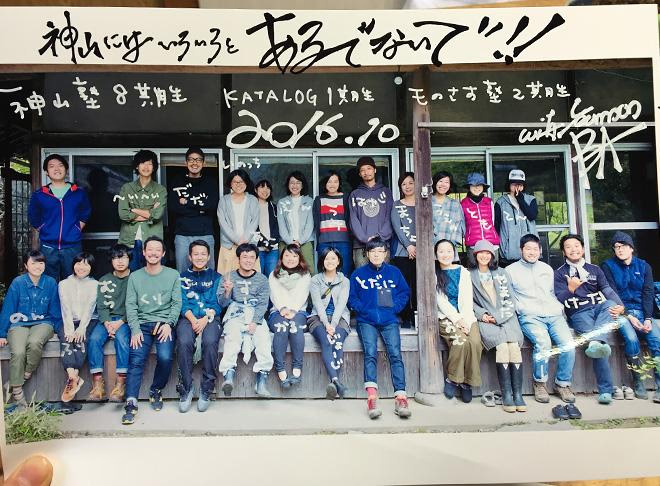
The photo was taken at Kobo Yamauba, where the Monosasu Juku and Kamiyama Juku jointly held the event "Aru de Naide Kamiyama."
Kamiyama-cho, Meisei-gun, Tokushima Prefecture. Life here is very similar to that in Oita Prefecture, where I was born and raised. When I heard that I would be writing about something related to Kamiyama-cho, I honestly thought it would be a disadvantageous environment for finding material. I have experience in agriculture (my parents are part-time farmers and I was in charge of the combine harvester), I heat the bath with firewood (I was in charge of heating the bath when I was a child), I have to travel by car (I drove 60km every day to work), and insects are my friends (I coexisted with insects at my parents' house), so it's no different from my everyday life.
During that time, I met students and local people who shared the same values as me, "Working with people you want to live with," and they greatly changed my values. What I gained from living communally for half a year is a precious treasure that cannot be replaced by anything else. (For more details, see " Kamiyama Monosasu Juku Students' Current Thoughts: Roundtable Discussion - Message from the Second Batch of Kamiyama Monosasu Juku" ).
Thanks to that, I was able to think carefully about how I wanted to work. (It's rare to have an environment where you can take a good look at one company for half a year.) Now, I'm neither a full-time employee nor a freelancer, and I go back and forth between the two. I feel comfortable being in an environment where various elements intersect, rather than an environment where the same values are gathered. In that environment, I wanted to work in a way that values connections with people.
Conclusion: Why Thailand?
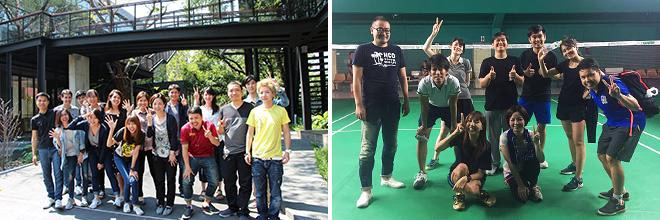
(Left) Group photo taken in front of the Monothai office. (Right) Badminton club activity. Thailand's national sport.
I've explained a lot of things so far, but why am I in Thailand? The answer is "somehow, that's how it went" (laughs).
I'm sorry that I chose this place on a whim, even though I've made a lot of detours (moving 4 times in one year), but I'm sure that I wouldn't be here if the above circumstances hadn't happened. I hadn't done much research on Thailand, I couldn't speak Thai, and I didn't have any acquaintances. In other words, I didn't choose this place because of the location, but because I wanted to be in a diverse environment and value connections with people, and that's how I ended up here in Thailand.
Nowadays, you can get a lot of information by searching the internet. After doing a lot of research, I may have decided that this place was the best given my conditions. However, I feel that there is value in the process of going there and developing an attachment to the place and people , and today I am experimenting with different ways of working here in Thailand (it's an experiment, so it's okay if I fail!) while enjoying the unimaginable excitement.
